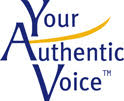 You’ve just delivered your presentation. The audience appeared receptive. They were smiling, nodding their heads and asking lots of questions. You enjoyed interacting with them, and many of them approached you after the event to learn more about your topic and get your card.
You’ve just delivered your presentation. The audience appeared receptive. They were smiling, nodding their heads and asking lots of questions. You enjoyed interacting with them, and many of them approached you after the event to learn more about your topic and get your card.
Sounds like a resounding success!
However, instead of feeling satisfied and looking forward to the next opportunity, you have this sick feeling in your stomach you could have done better. Much better. What about that one person sitting in the front row who looked down a lot, and the other one with her arms crossed? Maybe they could tell you were nervous. You think, “I must not have included the right information. I probably shouldn’t be up there because someone else would have done a much better job. What was I thinking? Who do I think I am? They know I’m not qualified, or they’ll find out soon enough.”
Depending on how deeply, and how often you experience these thoughts, you could be suffering from Imposter Syndrome.
Impostor Syndrome causes people to doubt their achievements and fear they will be exposed as frauds. Anyone, regardless of position or social status, can experience Imposter Syndrome.
Impostor Syndrome is not listed in the Diagnostic and Statistical Manual of Mental Disorders, the American Psychiatric Association’s authoritative reference. However, the term has been around since 1978 and the condition has been treated as such.
How does Imposter Syndrome start? A few triggers could be:
- A new opportunity or recognition.
- Growing up with a gifted sibling — feeling you can never measure up may lead to feelings of deep inadequacy.
- Being labeled as gifted or exceptional as a child — those who are taught they are superior in some way can develop Impostor Syndrome when they attempt to achieve something that inevitably requires struggle.
I think Imposter Syndrome can result from comparing ourselves to others, or to some “ideal.” For some of my clients, they feel the pressure to perform perfectly before they’ve even given one speech, as if a learning curve is not part of the process.
What to do?
What I’ve found works is to question the beliefs and challenge the stories we carry about ourselves. After all, most of what we perceive comes from our own narrow understanding and is therefore not complete. We make things up about ourselves and others on very limited information. Once we look objectively at those perceptions, we often find we’ve been way too hard on ourselves and this can open us up to saying yes to our strengths and new opportunities.
If you feel uncomfortable sharing your expertise because you lack confidence or feel inadequate, get support. You don’t need to live with it, contrary to what you might think. You can identify your blind spots and work through this distorted thinking. Invest in yourself so you can reap the rewards of greater confidence and success.
I would love to support you. Please contact me at Andrea@AndreaBeaulieu.com.

Leave A Comment